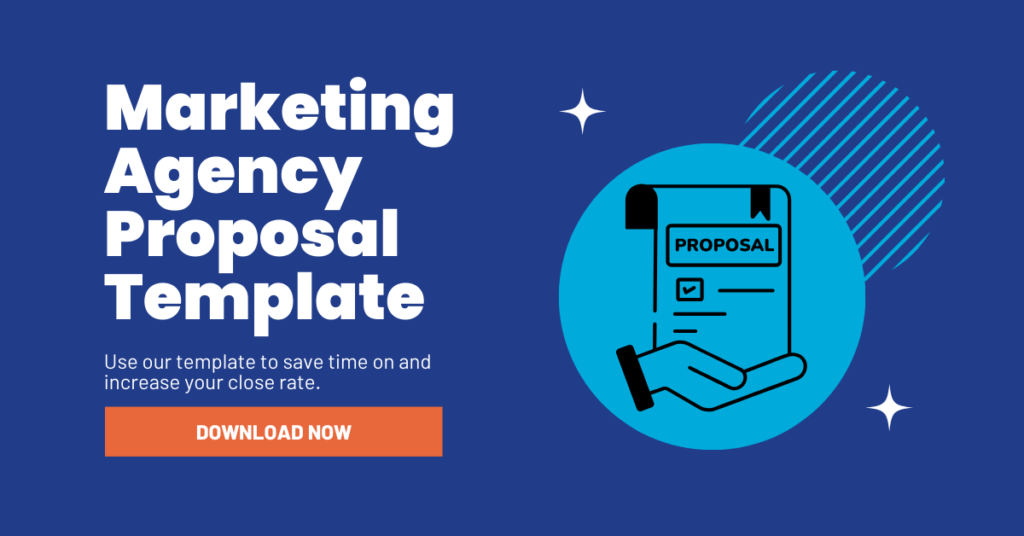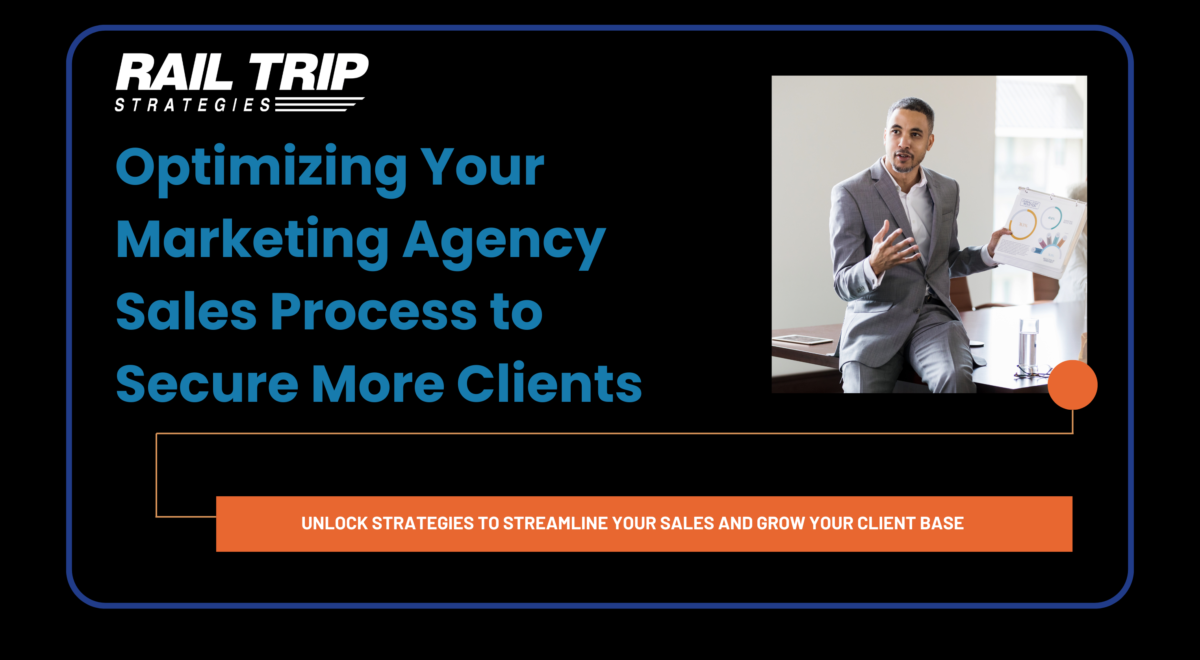A sales process refers to the structured series of stages that a potential customer is guided through on their journey from lead to closed-won. An optimized sales process is crucial for marketing agencies to generate new business and nurture relationships systematically.
The primary goals of an effective sales process in an agency are to:
- Attract and qualify the right leads that fit the agency’s niche or services
- Build rapport and trust with potential clients through helpful education and value-added interactions
- Align proposed solutions to the prospect’s unique needs, challenges, and goals
- Systematically progress leads through the pipeline to become customers
- Continuously refine the process based on metrics to improve results
The benefits of developing and following a formalized marketing agency sales process include increased lead conversion rates, faster deal cycles, higher customer lifetime value, and overall greater profitability and growth for the agency. The process provides a roadmap for sales teams to engage and guide prospects until they become customers.
Identifying and Understanding Your Target Audience
A crucial first step in developing an effective sales process for a marketing agency is identifying and gaining deep insight into your target audience. This involves extensive research into your ideal client demographics and psychographics, analyzing data from your existing client base, and creating detailed buyer personas.
Researching Your Ideal Client Demographics and Psychographics
Conduct thorough market research to determine the key demographics of your ideal clients, including information like company size, industry, geographic location, and budget. But demographic data only provides part of the picture—you also need to understand psychographic information to know what motivates your prospects and influences their buying decisions. Useful psychographic data to research includes values, interests, attitudes, pain points, and buying motivations.
Analyzing Your Existing Client Base
Review historical sales data and feedback from your current clients to spot trends, commonalities, and insights you can use to optimize your sales process. Look at factors like how they found you, what resonated with them during the sales process, what convinced them to become customers, and what challenges they aimed to solve by working with you. Talk to your team that works with your current client and gather their input. You’ll be pleased with the added perspective.
Developing Detailed Buyer Personas
With demographic, psychographic, and customer analysis data, you can develop detailed buyer personas that represent your core target audience. Well-researched personas should go beyond basic traits to include narratives around motivations, goals, challenges, values, objections, and buying criteria. Different personas may warrant adjustments to your sales messaging and processes. Referring back to these personas at each stage of the sales process helps keep your messaging relevant and compelling.
Steps of an Effective Marketing Agency Sales Process
An effective sales process for a marketing agency generally involves several key steps from initial lead generation through closing the deal. These steps help move prospects through the sales funnel by building awareness, interest, and trust.
Lead Generation
The first step is generating promising new leads that fit the ideal client profile. This can be done through a mix of inbound tactics like blogging, SEO, and paid advertising as well as outbound prospecting methods like cold calling and email outreach campaigns. Strong lead generation ensures a healthy pipeline of potential new business opportunities.
Initial Outreach
Once leads are identified, the next step is the initial outreach. This usually consists of a cold email or phone call introducing the agency and pitching a discovery call to learn more about the prospect’s needs. The messaging must be personalized to increase open and response rates.
Discovery Call
This qualification call aims to determine if the lead is a good fit for the agency’s services and uncover details about their goals, challenges, and budget. Skilled sales reps ask strategic questions to gauge pain points and identify opportunities to add value. They can then tailor solutions and next steps accordingly.
Internal Review – With Your Team
Introduce the opportunity to your team—the developers, designers, and paid advertising specialists, among others. This extra step is invaluable as it keeps the team engaged and allows you to gather diverse perspectives. Additionally, it can help uncover fresh questions or feedback that the salesperson may not have considered.
Discovery Call #2
This second call is crucial as it gives you another opportunity to engage with your prospect. As a bonus, consider including experts from your team in the conversation. Even if your Chief Creative Officer might not need to participate, having them join can be beneficial. Their presence demonstrates your investment in the prospect’s interests. Utilize this call to delve deeper with your questions and to confirm the project requirements.
Proposal and Pricing
For qualified, interested leads, the next step is creating and sending a custom proposal outlining proposed solutions, deliverables, timelines, and pricing. The proposal should be personalized to address the prospect’s specific needs uncovered during the discovery call. Pricing should take into account the scope of work required. Need help with your proposal?

Follow-Up and Persistence
Persistent follow-up is key. Prospects are busy, and everyday business or life events can delay their responses. Don’t let a proposal languish unanswered in your pipeline for months; it’s probably a lost cause. Communication is critical at this stage. Use this phrase in your email follow-up when you encounter this scenario in the future: ‘No, is a good answer.’ The most important part here is getting an answer, whether it’s good or bad.
Negotiation and Closing
The final steps include negotiating any details of the proposal and closing the deal. Addressing prospect concerns and modifying the proposal as needed can help secure the business. Excellent closing skills are required during these final stages to transition leads into signed contracts and new clients.
Continuous Improvement and Adaptation in Sales Processes
A successful sales process requires ongoing refinement and optimization based on performance data, testing, and changing market conditions. Marketing agencies should regularly review metrics and key performance indicators (KPIs) to identify areas for improvement.
Analyzing conversion rates at each stage of the sales funnel, win rates for proposals, and sales cycle length can pinpoint bottlenecks or weaknesses. Agencies can then focus efforts on the steps needing the most improvement.
A/B testing different sales approaches is also invaluable. Trying variations in outreach messages, lead nurturing tactics, or the sales presentation can reveal what resonates best with prospects. The testing process enables continual optimization of each element in the sales process.
Finally, agencies must adapt their sales process to align with market changes. New competitor offerings, disruptive technologies, economic shifts, and evolving buyer expectations are examples of trends that may necessitate sales process adjustments. Agencies that regularly update their approach based on market intelligence can capitalize on opportunities and remain competitive.
With ongoing review, testing, and adaptation, agencies can transform their sales process into one that drives continual improvement in performance. A dynamic, optimized sales process will convert more leads, shorten sales cycles, and boost win rates.
Sales Process Made Easy!
A well-designed sales process is critical for the success of any marketing agency. As outlined in this article, key steps include identifying your target audience, mapping out an effective pipeline, integrating sales strategies, leveraging technology, nurturing leads with content, continuously optimizing, and analyzing metrics.
By taking the time to develop and refine a sales process tailored to your agency’s unique offerings and customers, you’ll be well positioned for sustainable growth and profitability.
Developing a sales process and filling your funnel can be overwhelming, even for the pros. At Rail Trip Strategies, we guide our partners through every stage of the sales process to ensure they’re well-positioned to identify ideal prospects, secure profitable new business, and achieve consistent growth. If you’re seeking guidance, our team is here to help. If you’re seeking expert support, our Sales Enablement Services are built to help agencies like yours convert more leads, faster.
Reach out to us today and see if we’re a good fit for your agency.

